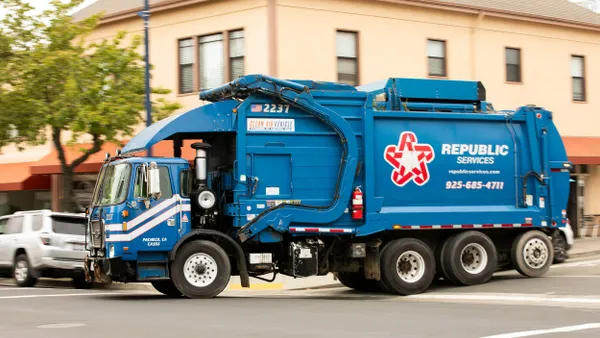UPDATE, July 13: Funding for North Carolina's Division of Environmental Assistance and Customer Service (DEACS) was mostly preserved in the state budget finalized last month, as reported by Resource Recycling.
DEACS, a part of the state's Department of Environmental Quality (DEQ), had been at risk of near elimination during weeks of budget negotiations. The final budget reduces the division's approximately $2.9 million budget by about $500,000 and will cut seven positions in regional offices as a result. The technical assistance and grants offered by DEACS will reportedly not be affected.
The DEACS funding decrease is part of a larger $1.1 million cut to DEQ funding that is expected to affect other positions within the agency and require remaining employees to reduce their expenses.
UPDATE, June 7: The North Carolina House of Representatives has pushed back on efforts to cut funding for the state's Division of Environmental Assistance and Customer Service, as reported by Resource Recycling. The budget put forth by the House would fund DEACS at $2.9 million for two years, reversing the Senate's previous proposal to eliminate nearly all of the division's budget.
The Carolina Recycling Association and the Southeast Recycling Development Council recently delivered a petition with 400 signatures opposing the cuts and sought to educate legislators about the work done by DEACS. Though House members have been swayed, it remains unclear why the Senate took this initial approach and they could still try to enact cuts of some level. The two bodies will now work to negotiate a final budget ahead of the July 1 fiscal year start.
Dive Brief:
- The Division of Environmental Assistance and Customer Service (DEACS) — part of North Carolina's Department of Environmental Quality (DEQ) — was targeted for major budget cuts in a bill recently passed by the state's Senate on May 12, as previously reported by Resource Recycling. Now, the Association of Plastic Recyclers (APR) is rallying its members to contact local representatives and push back on this plan, according to an email from the organization.
- The Senate's proposed budget would cut $2.9 million in appropriations and eliminate nearly all of the division's 35 full-time employees. The budget would also cut close to $1.4 million in funding for DEACS support at DEQ's seven regional offices by eliminating 14 additional full-time employees.
- As North Carolina's House of Representatives puts together its own budget bill, which could be released early next week, APR hopes to highlight the importance of DEACS to the state's recycling industry. According to their email, the division has been responsible for providing technical assistance to convert more than 300 municipalities to curbside cart collection among other services.
Dive Insight:
So far Senate representatives haven't provided any public rationale for the decision to eliminate a non-regulatory agency that by many accounts has been a national leader on policy and an aid to the state's recycling industry. DEACS exists to promote waste reduction and recycling by offering technical assistance to citizens, industry and local governments. This includes coordinating with local programs, helping with permit applications, issuing grants for new projects and a host of other functions. According to a recent brochure from the agency, DEACS assisted with 1,181 regulatory inquiries and handled 6,362 customer service calls in 2016.
An estimated 17,000 people are employed in North Carolina's recycling industry and this economic angle has been the focus of recent efforts to drive consumer participation. Earlier this year, the Carolinas Plastics Recycling Council launched a campaign called "Your Bottle Means Jobs" to highlight the direct link to local plastics recycling and processing facilities in the region. Supporters of DEACS argue that in addition to creating economic activity, the agency has also helped save local governments money.
Without any public justification from the Senate it's hard to ascribe any motivations or meaning to their actions aside from an interest in reducing the scope of environmental programs in government. Last year, they also voted to eliminate the state's electronics recycling program though the measure was ultimately unsuccessful. At a time when the Environmental Protection Agency is also slated for potential cuts — yet their leadership has expressed a desire to shift more authority back to state environmental agencies — this trend is a concern among recycling professionals.











